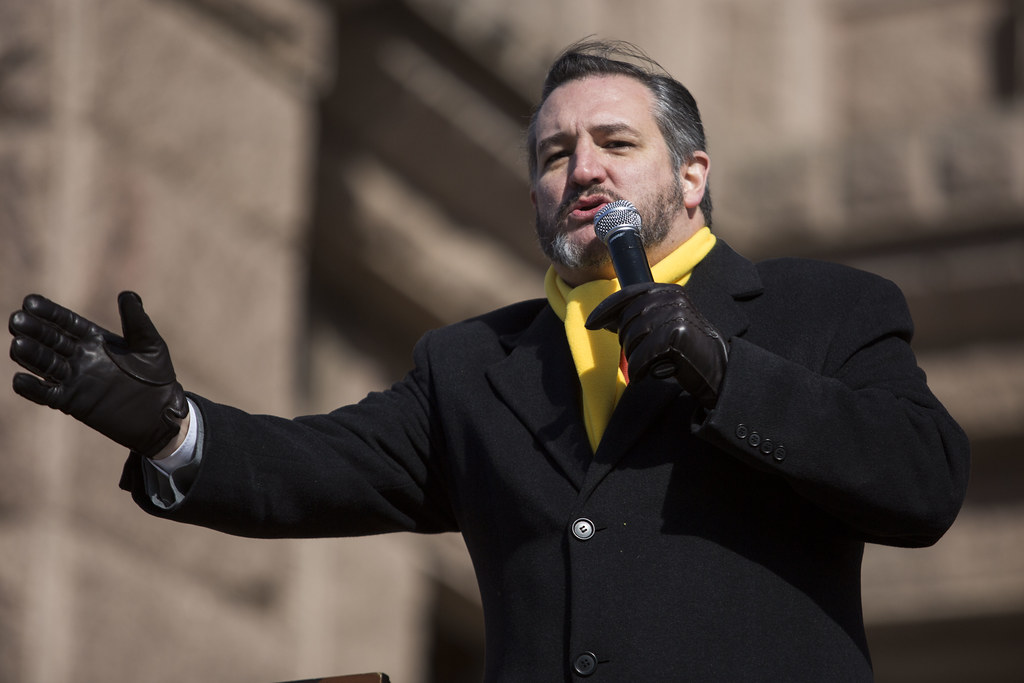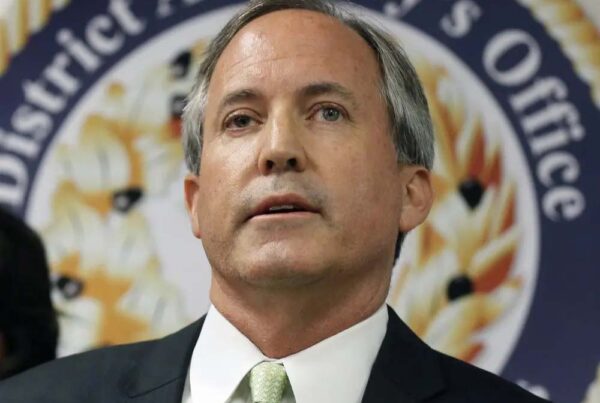Two advocacy groups have called on the Federal Election Commission to investigate U.S. Sen. Ted Cruz of Texas.
The complaint centers on more than $630,000 in advertising revenue that has flowed from Cruz’s podcast, Verdict with Ted Cruz, to a Super PAC backing his reelection. Cruz is facing a challenge from Democratic U.S. Rep. Colin Allred as he seeks a third term.
Joseph Morton, who covers national politics for The Dallas Morning News, said Cruz launched his podcast during the 2020 impeachment trial of former President Donald Trump in the U.S. Senate. Cruz does the podcast, which is syndicated by iHeartMedia, three times a week.
“It’s built quite an audience,” Morton said. “He gives his conservative take on things mixed in with some sports talk and pop culture chats as well.”
iHeartMedia sells ads that run during Cruz’s podcast, and according to Morton, Cruz has said he doesn’t get any money from these sales.
“Cruz says he is an uncompensated volunteer,” Morton said. “But iHeartMedia has confirmed that they are sending a portion of the ad revenues – and this is hundreds of thousands of dollars – to the Super PAC backing his reelection, which raises some campaign finance questions.”
The complaint in this case was raised by the Campaign Legal Center and End Citizens United, two groups that focus on campaign finance rules.
“What they’re saying is essentially that by directing this advertising money to the Super PAC, the senator is circumventing limits on what candidates are allowed to raise,” Morton said. “So they’re asking the FEC to look into it and potentially sanction the senator.”
» GET MORE NEWS FROM AROUND THE STATE: Sign up for Texas Standard’s weekly newsletters
Morton said there are a lot of details that are still unclear in this case.
“iHeartMedia, Senator Cruz and the Super PAC, none of them have given a lot of detail about how this arrangement works, but it’s clear from campaign finance filings the Super PAC has made that it is receiving hundreds of thousands of dollars from iHeartMedia in what they are calling digital revenue or digital income,” he said.
The Super PAC has supported a number of Republican candidates in the past, but Morton said it seems to have zeroed in on supporting Cruz this election cycle.
“Their website has splashy photos of Ted Cruz,” he said. “Their press releases are attacking his opponent, Colin Allred, the Democratic congressman from Dallas. So they are dedicated to getting Ted Cruz a third term.”
Cruz has already pushed back on questions about this complaint in the press, Morton said.
“He says all this attention on the finances around the podcast are an effort by the liberally biased media and Democrats to shut down the podcast, which he says exists to try and get around the mainstream media and give the real story to his listeners,” Morton said.
This is not the first time Cruz’s podcast has been investigated in D.C., though no wrongdoing was found when the Senate looked into the possibility that the show violated lobbying policies.
“The Campaign Legal Center filed a complaint right after iHeartMedia got involved. At that time, the focus of that complaint was that it represented an illegal lobbyist gift to a senator, because members of Congress are not allowed to receive gifts from lobbyists. And because iHeart lobbies, they said iHeart’s support of the podcast constituted an illegal gift,” Morton said.
“The Senate Ethics Committee, where they filed a complaint, reviewed it, said there’s nothing wrong with this, and dismissed it, summarily. This is a little bit of a different complaint, given that they are saying it violates campaign finance law rather than the ban on lobbyist gifts.”
If the FEC determines there is a violation in this case, it could lead to sanctions and possibly a fine.
“It’s worth noting that it often takes a very long time for these complaints to work their way through the system,” Morton said. “It could be many months. It could be this time next year, which obviously would be well past the election this November.”














